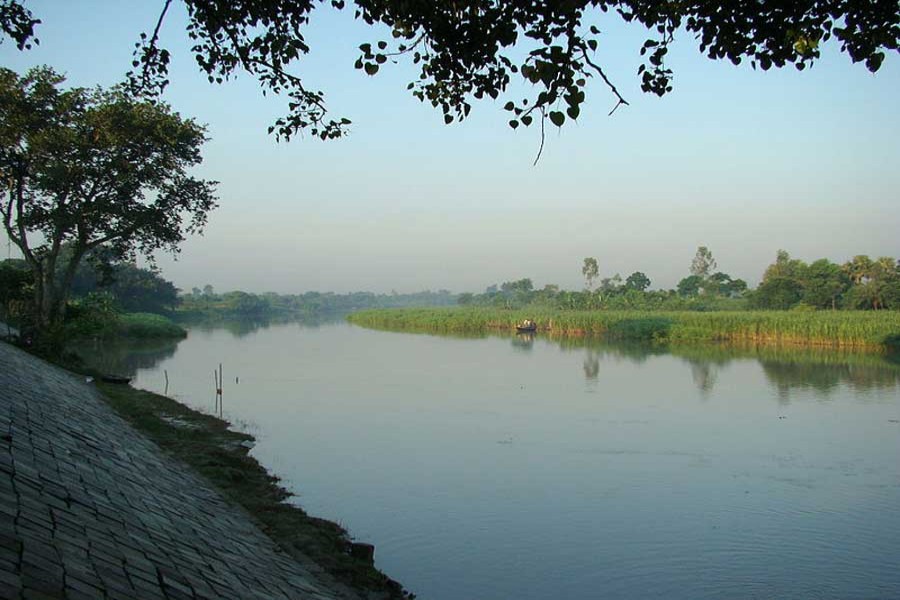

Beyond being a mere geographical feature, Bangladesh's network of rivers has historically shaped its identity and sustained its survival. Their slow death now signals an ecological disaster that is threatening the very bases of the country's ecosystem and economy. A recent study titled "Dried-up Rivers of Bangladesh" by the River and Delta Research Centre (RDRC) lays bare how severe the situation is. It found that a total of 81 rivers that are crucial for agriculture, biodiversity and rural livelihoods are now running dry during the lean season. The crisis is particularly acute in regions such as Khulna, Satkhira, Rajshahi and Kushtia where these rivers once formed the backbone of local life. River-based livelihoods, particularly fishing, are disappearing fast there. Agriculture is struggling, biodiversity is collapsing, and areas that were once green and thriving are now in danger. As these once-mighty rivers dry up, so does the country's hope for a stable and sustainable future.
There are many factors that led to the rivers running empty. Locally, as the RDRC study pointed out, pollution, sedimentation, and rapid urbanisation stemming from negligence and lack of planning have interrupted natural flow of water. Unregulated development reduces the rivers' capacity to carry water, as riverbanks are increasingly encroached upon for housing and commercial infrastructure. But the problem extends beyond Bangladesh's borders. A significant share of the blame lies upstream, where dams and barrages built by India divert, withhold or disrupt the natural flow of transboundary rivers to deprive Bangladesh of essential water during dry seasons. For a country whose whole existence is dependent on these shared rivers, this is particularly concerning. This diminished water flow has wide and terrible consequences. Fishing communities are losing their livelihoods, forcing many to migrate to overcrowded cities. As rivers dry up, silt builds up that makes navigation more difficult. In coastal areas, saltwater is creeping inland, which ruins farmland and contaminates drinking water.
Over the years, various efforts have been made to save the rivers, but their effectiveness has consistently fallen short. While pledges to protect rivers are frequently made by different levels of government and even the courts have ordered action, illegal encroachment and pollution have remained unchecked under the influence of political power and vested interests. As a result, despite good intentions, most efforts have remained confined to promises. In the past, some projects were undertaken to increase water flow through dredging, but those were often irregular and poorly managed. One recurring flaw is dumping dredged soil along riverbanks, only for it to be washed back into the river during the monsoon. This not only wasted effort but sometimes actually made siltation worse. Other small-scale efforts like tree planting or occasional clean-up drives are too limited and insufficient to meet the scale of the crisis.
Immediate and coordinated action is now essential to stem the tide of this escalating ecological crisis. The RDRC study outlines some necessary measures to address the domestic issues such as pollution control, erosion prevention and ecosystem restoration. However, the most pressing challenge involves transboundary cooperation, as most of Bangladesh's rivers originate upstream, particularly in India. Existing dams and diversions on shared rivers have already placed Bangladesh in a vulnerable position. This necessitates bilateral agreements with India to ensure equitable water-sharing, protect downstream flows and ecological balance. Meanwhile, China's longstanding interest in constructing barrages on the Padma and Teesta rivers presents a potential alternative should bilateral talks with India prove unsuccessful. With rivers continuing to disappear day by day, the stakes for Bangladesh are too high for inaction. The country must pursue every available solution to secure its rivers before it is too late.


 For all latest news, follow The Financial Express Google News channel.
For all latest news, follow The Financial Express Google News channel.